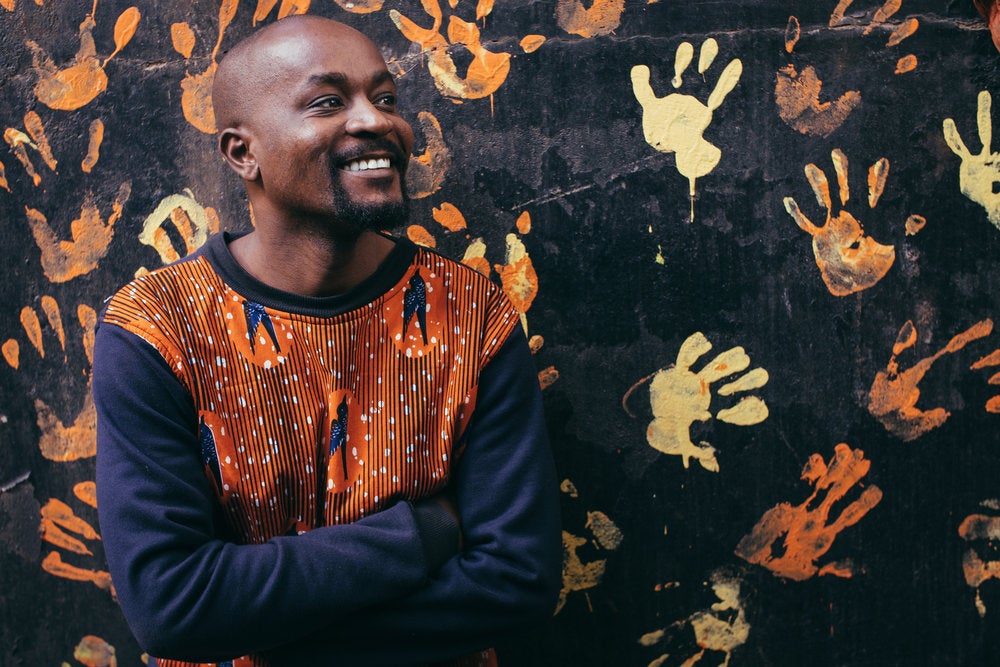Eric Gitari is a candidate for the Doctorate in Juridical Science (S.J.D.) at Harvard Law School. Before beginning his studies at HLS, Gitari was the co-founder and executive director of the National Gay and Lesbian Human Rights Commission in Kenya (www.nglhrc.com).
In a 2018 Harvard Law Today profile, Gitari discussed his work with NGLHRC—most notably, a case in Kenya that his NGO brought on behalf of two young men arrested in 2015 on suspicion of engaging in homosexual activities—a felony in Kenya—and distributing pornographic material.
Here, Gitari describes his work this summer monitoring the status of human rights for LGBTIQ persons in Gambia and Senegal, and his ongoing efforts to decriminalize same-sex relations in these and other African countries.
This summer, I spent eight weeks as a Chayes International Public Service Fellow with the United Nations Office of the High Commissioner for Human Rights (OHCHR) Regional Office for Western Africa in Dakar, Senegal.
My work involved monitoring and assessing the human rights situation of LGBTIQ persons in Gambia and Senegal. Both countries criminalize same-sex relations and have prosecuted LGBTIQ persons, and entrenched nondiscrimination clauses in their legal systems do not include sexual orientation and gender identity grounds. The assignments that I undertook, including research and documentation, consultations and field visits, preparing briefing notes and reports, and holding focused discussions with stakeholders, complement my doctoral research, which investigates how background social-legal issues become foreground constitutional issues by studying the criminalization of homosexuality in Botswana, Kenya and Nigeria.
I spent the first week in Senegal, holding meetings, calls and consultations with stakeholders to familiarize myself with the context of the work. But in the second week, LGBTIQ groups in Senegal abruptly closed their offices and suspended health and psychosocial programs, while activists fled to neighboring Mauritania, Gambia, and Mali, where homosexual acts are either criminalized or targeted under laws against association for immoral purposes and public indecency.
The trouble had started when a popular Senegalese singer, Wally Seck, wore a rainbow-colored T-shirt during a live TV performance before a widely viewed football match. A media frenzy ensued, juxtaposing photos of the singer with images of rainbow flags in pride marches in European and North American cities. Religious and civic leaders denounced him as a puppet of the West, paid to recruit homosexuals in Senegal. NGOs and religious groups demanded the de-registration of all LGBTIQ groups in the country, and accused Western charities and foreign powers of cultural aggression and imposing libertarian theories alien to local customs. Street protests called for stiffer penalties for homosexuality, while blogs and vlogs published names and private details of LGBTIQ activists in Senegal, inciting harm upon them.
In the midst of these homophobic incitements, we monitored and documented violations of the rights to privacy, association, security of the person, health, and equal protection of the law, among other freedoms and rights that are protected under the Senegalese constitution and international human rights instruments ratified by Senegal. Many LGBTIQ persons reported low levels of trust in police protection due to past arbitrary arrests and harassment. Others reported that lawyers were unwilling to take their cases; in the past, lawyers have ceased representation when they discovered the sexual orientation and gender identity of their LGBTIQ clients.
Related Reading
Later in the summer, I drafted the initial framework for a research project on the human rights conditions of LGBTIQ persons in Gambia, including how they are portrayed in the media. We set off to Banjul to do field work, holding group discussions with journalists and human rights defenders. Yahya Jammeh, the former Gambian autocrat, had led a state-wide campaign against homosexuality, with torture, detention, violence, and asylum flights, and in 2014, Gambia expanded the criminalization of homosexuality to include aggravated homosexual offenses, imposing life sentences for repeat offenders and gay sex with disabled persons, children, and HIV-positive persons. Although the regime that has led Gambia since 2017 has stopped prosecutions of LGBTIQ persons, the criminalization remains and the legacy of state-led prosecution and persecution still persists.
In Gambia, however, there are green shoots of rule of law and equality that give me hope. Civil society groups and LGBTIQ activists are rebuilding institutions and forging working partnerships in legal and social reforms after three decades of tyranny, dictatorship, poverty, institutional breakdown, forced disappearances, and mortal fear. I wonder whether this history, and the legal-social effects of the instrumentalization of homosexuality by the former autocratic regime, will inform the ongoing transitional justice, constitutional review, and legal reform processes in Gambia. Will new perspectives on what has happened in the past lead to decriminalizing homosexual conduct in the new penal code, or possibly entrenching nondiscrimination protections based on sexual orientation and gender identity in the new constitution?
In the end, I remain deeply concerned about the opportunistic politicization of homosexuality in Senegal and the insufficient legal and institutional protections for LGBTIQ persons there. My supervisor in Dakar asked my opinion on when and how the rule of law will work to include LGBTIQ persons in Senegal. As to when, my academic work at HLS suggests that this might be highly unlikely while criminalization persists. My research has demonstrated that in Kenya and Uganda, judicial adjudication of discrimination claims on the basis of sexual orientation and gender identity has managed to counter unfair discrimination from the democratic branches of government and generated jurisprudence towards incremental decriminalization. What about jurisdictions like Senegal, without such judicial processes and with hostile social movements? The methodological question of how remains one of the open questions in my continuing research, and my experiences in Senegal and Gambia have offered a spectacular vantage point from which to critically reflect on theory and practice as I prepare to write my doctoral thesis.
